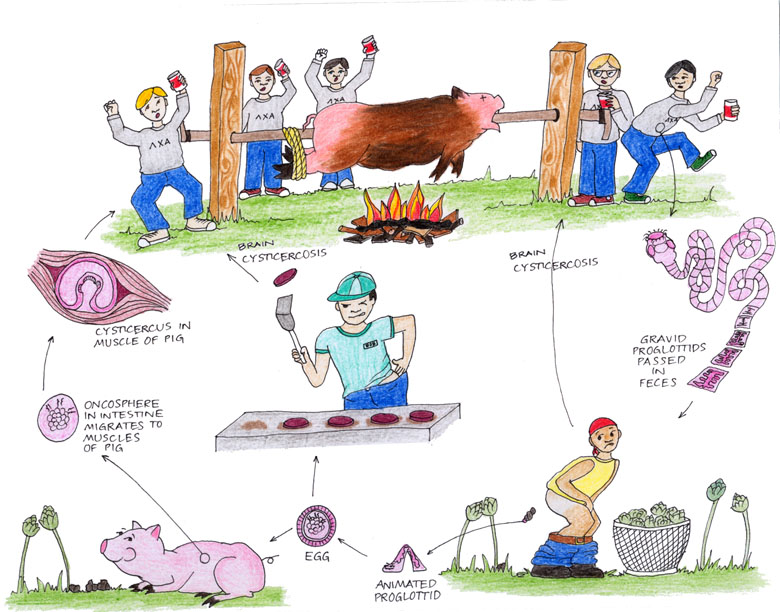

Taenia solium is commonly referred to as the pork tapeworm. Humans harbor the adult worm and pigs serve as the intermediate host. Egg capsules from human stools contaminate vegetation which pigs may eat. The egg capsules contain an oncosphere or hexacanth larva which when ingested by pigs, develops into a cysticercus, otherwise known as a bladderworm, usually in the muscles of the pig. If pork is eaten poorly cooked, the cysticercus evaginates its scolex in the duodenum and grows into an adult up to ten meters long. Pigs cooked by amateur barbecuers may serve as a source of infection. If humans accidentally ingest the egg capsules, cysticerci or bladderworms will develop in a variety of vital organs including the the brain, eye, heart, lungs and liver, interrupting function. This condition is known as cysticercosis, causing this worm to be the most dangerous of the human tapeworms. A single person who is infected may contaminate his/her surroundings posing a danger to others. Infected farm workers defecating in the field may contaminate a crop which then may serve as a source of infection for humans as well as pigs. Contaminated maids and cooks may inadvertently infect members of the household they serve.